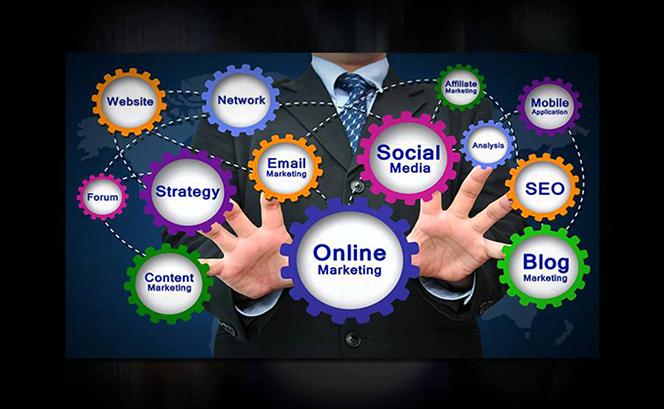- Written by cmcintire
- Categorised The 7th Gear
Marketing is one of those business buzzwords. Everyone supposedly “needs” to be up on the latest and greatest secret trend. Our Inbox is full of emails that claim that the sender knows the magic method of marketing that will allow us to generate new customers in our sleep and better yet, it’s scalable and reproducible. All we need to do is click to subscribe, join the webinar, pay an introductory fee, engage a consultant and begin raking in the cash.
Right?
Not right.
When something sounds too good to be true, it’s because some predatory ad-writer is trying to seduce you into believing that they can do something that no other business person since the beginning of time has been able to do. Create something from nothing. Deliver to your doorstep the illustrious “free lunch”.
I hate to burst their bubble. Actually, no I don’t.
Here’s the deal. Pack your own lunch just like your parents taught you and be ready to go to work. And in related news:there are no shortcuts to success.
Rats.
I know you were hoping there was! WELCOME TO THE CLUB.
But just like when we have a big project around the house or yard, in our businesses, if we don’t show up, roll up our sleeves, and get to work, nothing is going to get done.With that out of the way, let’s talk about what “marketing” actually means. When we check out what our friend Wikipedia says about it we find a rather simple definition: The term developed from literally to going to market with goods for sale. Lest you think I ignored traditional Webster, there,that both the primary and secondary definition of marketing included either “purchasing” or “delivery” of goods. So if Merriam-Webster can screw up the definition, good news, you’re off the hook also if you don’t completely understand it either.
Let’s simplify this term. Marketing clearly involves the idea of an action we take with a “market”. A market is simply a group of potential consumers. Putting up a hand-drawn sign for a lemonade stand is marketing, posting “vote for me” signs in Student Council is marketing. Handing out free samples at the grocery store is marketing. Running a commercial on TV, radio, mass mailers, telemarketing, door to door sales, trade show sales, the state fair or the internet are all the same concept. It’s as straightforward as showing your product or service to potential customers.
The reason your inbox is full of “secret” marketing tricks is that there are a lot of companies that only know how to market to people who don’t have the experience to see through the racket. Ouch. Don’t worry, my inbox sees the same scams, and I’ve got lots of experience marketing successfully. But you don’t want to send your hard-earned cash to one of millions of emails being sent out daily and more than you’d send it to a “prince” from foreign shores who will definitely wire you millions of dollars if you only you trust him with your bank details!
Marketing is work. Always has been and always will be. Sure, you might get lucky for a time with a billboard, high traffic location, google adword and retargeting campaign, but you will always need to understand fundamentally how it works. If you don’t, prepare to shell out large fat stacks of cash on a monthly basis to experts (and there are real experts out there, not just email scammers.) The good news is that it is comprehensible and manageable, for those willing to do the work.
Yes, the internet is here to stay. But it’s not the only method of marketing and it’s not the highest yield method for most businesses. But since it’s the most mysterious to us Baby-boomers then it must be the silver bullet of success, right? Wrong.
At this time in marketing on the internet, there are basically two big players: Google and Facebook. They both work in a similar fashion, something like the electronic billboards that display an ad to the drivers sitting at a nearby intersection. Once you think about it that way, two things happen: 1) the mystery dissolves, meaning that marketing your product/service might not seem so daunting, and 2) the “silver bullet” fallacy dissolves making you realize your parents were right when they said there’s no free lunch.
Double-Rats.
Services like Google and Facebook can present your “billboard” ad to the drivers along the electronic highways of the internet, and they can present your short message to some of them more than once. And yes, those “drivers” might buy from you. But keep in mind that you still have to create the ad and change the ad from time to time. This means learning how their systems work. If not, you can end up throwing money down a black hole and seeing no return. But don’t believe that it’s too hard or magical that you can’t learn to do it.
Here’s another truth, and I’m sorry for my bluntness, but facts are facts. But that truth is that if you can’t (or won’t) learn the basics about how to show your products or services to your potential market, you probably shouldn’t be in business.
Triple-Rats.
I don’t like being the bearer of such news, but someone has to tell the authentic truth about business ownership. It’s tough sometimes, and it might feel like the ground rules change, but you can learn the basics and keep up with the changes. If the ads you write aren’t working as well as you want, then it’s always an option to you can hire a business coach to help you.
When and if you work with any business consultant or marketing expert that doesn’t want you to learn how some business processes actually work, stop and ask yourself “Why?” The answer, of course, is because if you learn how to market your own business, then you don’t need to pay them to do it for you. Our goal at 7th Gear Coaching is to get you to a point where you don’t need us. Yes, we will stay available for quarterly checkups, but our main goal is to assist you in wrapping your hands (and your head) around the needs of your business, including marketing.
It’s our goal to take the mystery out of advertising on the internet. It can’t be that easy can it? Yes, it is. And keep in mind that there are numerous other methods of marketing. A great business coach will find out what works best for you and your business and your comfort zone (and let you know when you need to stretch your comfort zone). Telemarketing, telesales, direct marketing, network marketing and B2B campaigns are all viable methods that most businesses need to look at to successfully take products and services to “market”.
Indicators that your Marketing Gear is out of Sync with your Business Model
*Typically, when one of the External Business Activity Gears is out of sync, you will see the evidence immediately downstream in your business model. However, since marketing is fundamentally lead generation and is quantified as a cost of acquisition for sales, you can find evidence of your marketing gear being out-of-sync if your expenses are high and your sales are low.
*There is always investigation involved in diagnosing causes of business problems, but just like a good mechanic knows where to start looking when we tell him the car is making a peculiar noise, 7th Gear Coaching can help you learn how to diagnose your business engine.
*If your Sales Gear is showing low conversion from leads to customer purchasing, this can be a disconnect with your Marketing Gear.
*If your Marketing Gear message is not consistent and congruent with your corporate Identity Statements, you personally can experience some stress because you’re not selling what you really believe in. Ex: if your VMP statements have a lot of emphasis on the customer’s well-being, but you’re marketing things that are not fundamentally in the best interests of the clients, that will catch up with you. Lost sleep, depression, stress at work that transfers into stress at home, etc.
*If your fulfillment department is having a hard time with clients because a marketing “promise” is not being kept – that is the Marketing Gear being out-of-sync.
*Your Marketing Message is fundamentally telling your clients what to expect from you and your company. Out-of-sync marketing can impact all areas of your business. Understand that your employees will also perceive incongruencies and that can lead to a lot of friction throughout your organization.











